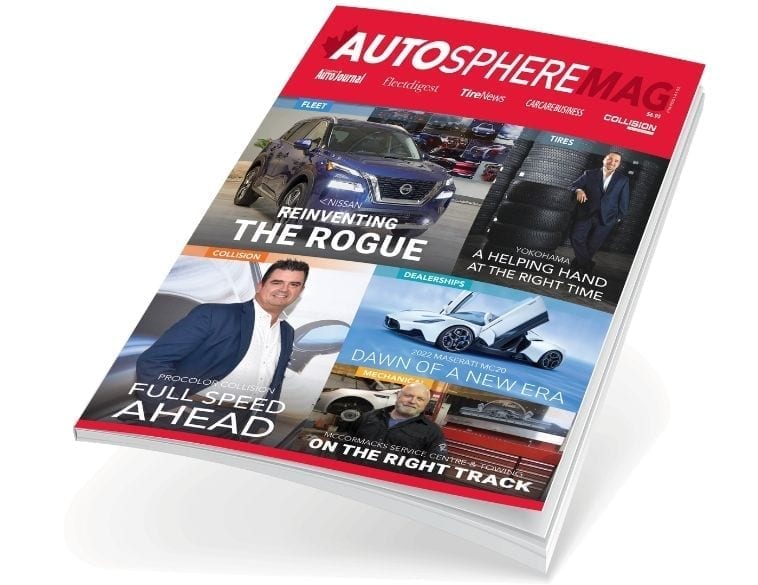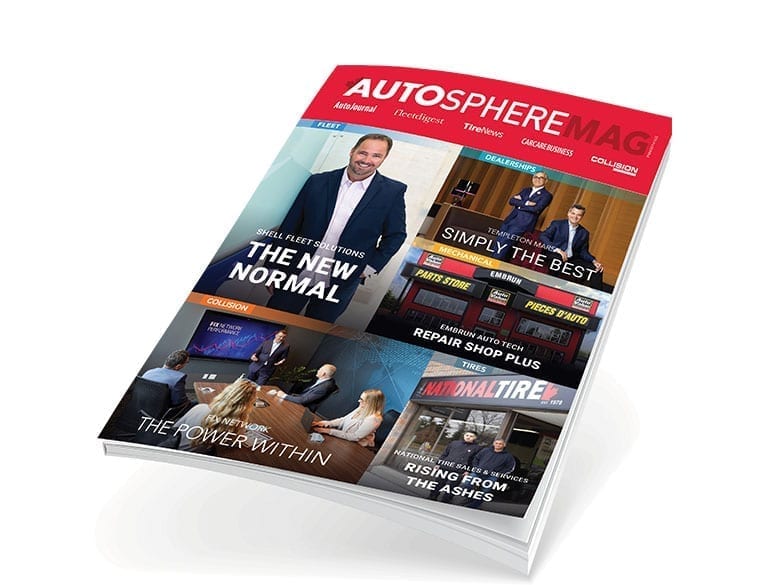2020 has tested the flexibility of business and stretched us all to the limits.
Like all other businesses around the globe, the auto industry here in Canada has been pummelled by the pandemic. After the shock of a sudden shutdown earlier in the year, businesses scrambled to reinvent themselves and get back to work.
This level of agility and flexibility has been key to getting the auto industry rolling again, and this issue of Autosphere Mag is packed with insight from business leaders who have analyzed the current landscape and are paving the way towards a better future.
Preparing for the future
Speaking about the challenges the collision repair side of our industry has seen this year, CCIF Chairman Paul Prochilo explained how the lack of formal business continuity plans was a key challenge for the industry, as was a supply chain credit crunch.
Despite those challenges, the collision repair industry is weathering the COVID storm, and is poised to emerge from the pandemic stronger and better equipped to face the future. As Prochilo says in his column, “COVID-19 has forced many businesses to embrace technology at a faster rate than they otherwise would have,” and that’s a good thing.
 One of our regular columnists, and industry experts, Brian Murphy, VP, Research & Analytics, Canadian Black Book explains in this issue of Autospehre Mag how the second wave of the pandemic will impact both the new and used car markets here in Canada.
One of our regular columnists, and industry experts, Brian Murphy, VP, Research & Analytics, Canadian Black Book explains in this issue of Autospehre Mag how the second wave of the pandemic will impact both the new and used car markets here in Canada.
Moreover, since our auto market is closely linked with the American market, if COVID cases continue to rise in the States, this will impact us here in Canada. Since exports of vehicles will fall, as will wholesale prices, dealers will have to be flexible as they continue to address the changing needs of both consumers and fleet customers.
Now what?
As encouraging as it is to see the various sectors of the auto industry adapt and change for the better, it leaves us with a question about the future. Fortunately, at the time of writing, news about a vaccine that is more than 90% effective is breaking, which gives us all hope. That said, we still have to deal with the pandemic in the meantime, so what do we do?
A measure of certainty would be nice, but as Manfred Baden, President of the Automotive Aftermarket, Robert Bosch said in a recent Automechanika panel discussion, “With coronavirus numbers rising again all over the world, it’s not possible to make a forecast.” He added that flexibility continues to be key: “We have to keep a close eye on the situation, so that we will be able to react quickly when the need arises.”
In that same panel discussion Jean-Francois Bouveyron, VP, Aftermarket EMEA, Delphi Technologies Aftermarket, added, “The situation forces us to be extremely agile,” and that’s the point. We will make it through this tough period, and we are sure to emerge from this dark time in our history if we continue to innovate and to be flexible.
This is not the time to stick to old norms. Instead, we need to approach challenges with agility, we need to continue to invest in our people, and to we need to plan for a new reality. Brighter days are ahead.



